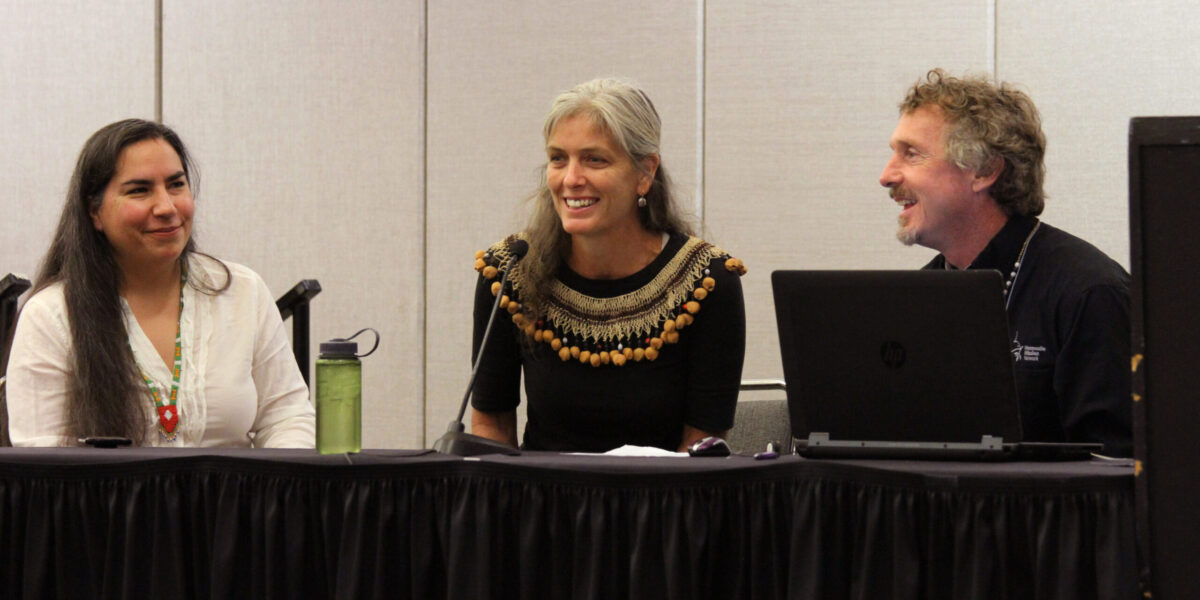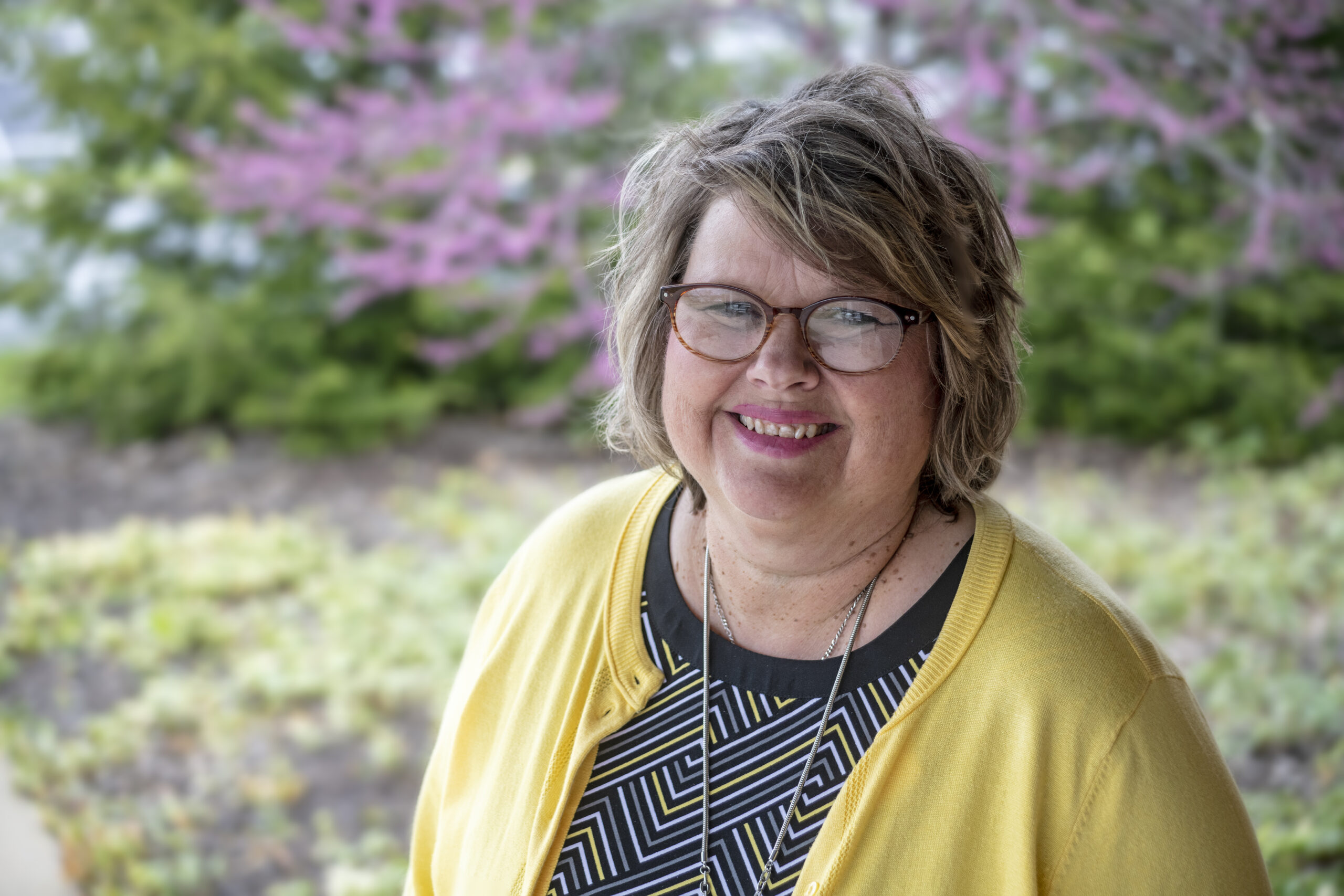KANSAS CITY (Mennonite Mission Network) – Before she became friends with Cofán people in their Ecuadorian rain forest village of Zábalo, Jane Ross Richer had not thought that dreams people had while sleeping were important, she said.
Until a year ago.
That’s when she and her husband, Jerrell, who serve with Mennonite Mission Network in Ecuador for six months each year, were visiting with Mauricio Mendua, an elder of the community. He shared with them his dream of seeing dead dolphins, as far as he could see, in every direction. Two men with harpoons were stabbing the dolphins one by one. He said it was bloody. It was sad. It was frightening. He couldn’t go back to sleep.
The Cofán people recount and interpret their dreams, Jane Ross Richer said during an equipping seminar July 3 at MennoCon19. So, together with Mauricio, they wondered what might be the meaning of this dream? Who, or what, do these dolphins represent?
"For many indigenous cultures, dolphins represent humans," she said. "When we consider what is happening to indigenous people around the world and the effects that Western systems are having on their way of life, it is no wonder that Mauricio would have a dream like this."
During MennoCon19, the Ross Richers shared many examples of their relationship-building in Zábalo. Their storytelling occurred in seminars, in a delegate session, and in interactions with friends and supporters at the Kansas City Convention Center. Their July 3 seminar was "Speaking to the Systems and Walking with Indigenous People." They were presenters with Sarah Augustine, a professor of sociology, the executive director of the Dispute Resolution Center of Yakima and Kittitas Counties, and co-founder of Suriname Indigenous Health Fund.
The speakers explored how Western development and the Doctrine of Discovery (DoD) are impacting indigenous peoples. (DoD is a 15th-century philosophical framework that gives "Christian governments" authority to dominate indigenous peoples and to invade and take over their lands.) Augustine is a member of the Anabaptist-launched Dismantling the Doctrine of Discovery Coalition. The group proclaims an Anabaptist spirit of discipleship rooted in the call to the love of neighbor, seeking right relationship, and reconciliation through active nonviolence.
"In our dominant Western culture, we often think about fairness and justice in terms of the powerful having more rights," she said. "Westerners can often think, ‘Why should a tiny group be allowed to own the majority of the wealth of the rainforest?’" In contrast, the work of the coalition is to help indigenous people become self-determining about what happens in their own communities and regions. "[In my work in Suriname] that has meant putting aside my vision for what I think should happen and giving the right to the people themselves," Augustine said.
Jerrell Ross Richer gave other examples of the effects of Western development in the rain forest. They include how fresh fish is being replaced by canned fish, how wild animals for food are being replaced by chickens, how traditional fermented drink is being replaced by American beers, how traditional dress is being replaced with Western wear such as sports shirts, and how medicinal plants are being replaced by Western drugs.
The Mennonite convention was a first stop this summer in North America for the Ross Richers, who spend six months each year in Goshen, Indiana, as part of their Mission Network assignment. This is when they share their ongoing journey with half of their supporting congregations. During this time, Jerrell also teaches environmental economics and sustainability at Goshen College, and Jane homeschools their children. "Because we are in the United States for half of each year, our sharing is a little different from that of those mission workers who get home only once every three years," Jerrell said. "So instead of telling the same story that they already know, we choose several themes to highlight."
They plan to focus on three themes: dreams; how North Americans can help to protect the rainforest by becoming more responsible about their carbon footprint; and the dilemma of finding education for the village’s young people that integrates new innovations with traditional cultural ways. For example, they have watched how their young friend, Rubin (not his real name), has had to make hard choices: Should he remain in his village to hunt and fish for a living, or further his education in a city, where his lifestyle will be forever changed?
They will also encourage their North American friends and supporters to join the next learning and fellowship tours to the rain forest, where the indigenous people can share their giftedness for sustainable living. The next tour is being planned for January 2020, and the Ross Richers will share trip details as they emerge.








